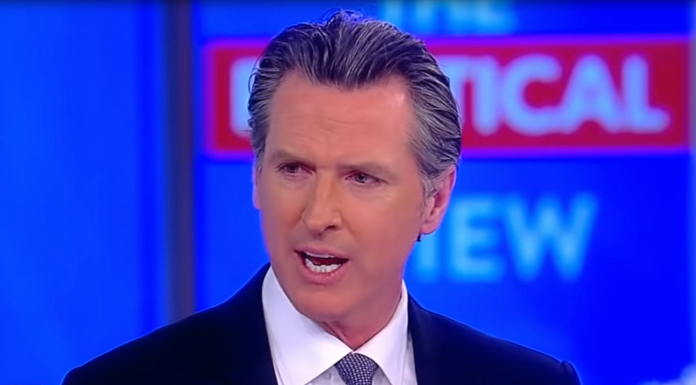(Headline USA) California won’t allow any distribution of coronavirus vaccines in the nation’s most populous state until it is reviewed by the state’s own panel of experts, Gov. Gavin Newsom said Monday.
Vaccinations for the pandemic “will move at the speed of trust,” said Newsom, a Democrat, and the state wants its own independent review no matter who wins the presidential election next month.
“Of course we won’t take anyone’s word for it,” Newsom said as he named 11 doctors and scientists to review any rollout of vaccines by the federal government or vaccine developers.
The board members hail from top California universities and medical providers, along with state and local public health officials.
The pledge raises the possibility that California residents might not receive a vaccine as distribution begins in other states, though the governor said widespread vaccinations are unrealistic until sometime next year.
While there is always a risk that the vaccine could be delayed only in California, Dr. Jeffrey Klausner, a professor of epidemiology at the UCLA Fielding School of Public Health, said Newsom named a renowned group that should be able to quickly make credible decisions.
“I wouldn’t interpret this as a delay in distribution. I would interpret this as an effort to make sure that distribution is equitable and timely,” he said. “The people in this group are among the most reputable public health advocates in the state.”
As such, its finding that a particular vaccine approved by the Food and Drug Administration or Centers for Disease Control and Prevention was suitable or not could have an outsize effect nationwide.
New York Gov. Andrew Cuomo last month appointed a similar independent task force.
“It would be a mistake not to be aware of the way that the CDC and the FDA have been pressured by the White House, no matter who’s in the White House,” said David Magnus, director of the Stanford Center for Biomedical Ethics, so “it might be prudent for a state to make sure everything’s kosher.”
He’s less worried that there will be disagreement between the federal and state panels now that no vaccine release is likely before Election Day, Nov. 3. But Magnus noted that it has not been uncommon for presidents to muzzle scientists in other areas, for instance climate change or other environmental policies, thus setting up regular lawsuits with states like California.
At most, 45 million doses will be available nationwide before the end of this year from the two most advanced vaccines, Newsom said. Each person must receive two doses, three weeks apart.
If California were to receive 12% of the doses, commensurate with its percentage of the nation’s population, that would be 5.4 million doses, or enough to treat 2.7 million of the state’s nearly 40 million residents.
Most would go to front-line medical workers and first responders, he said, then to the most vulnerable in the population.
Newsom’s announcement drew quick criticism from Republican state lawmakers.
“Politicizing the efficacy of a vaccine is shameful,” Sen. Melissa Melendez tweeted.
Newsom is “suggesting we can’t trust the FDA (but) Of course, we’ll continue trusting the FDA for every other drug whose distribution doesn’t threaten his hold on power,” tweeted Assemblyman Kevin Kiley, who has a court hearing this week challenging the governor’s authority to impose virus restrictions.
Newsom said the distribution and record-keeping logistics alone are massive, including a requirement that the vaccines be kept in continuous cold storage until they are administered.
One of the two leading vaccines requires “ultra cold” storage — think dry ice — of minus 94 degrees Fahrenheit. The other needs a minus 4 degrees Fahrenheit.
California last week gave the federal Centers for Disease Control and Prevention its early plans for how it would handle and distribute the vaccine, and in return received nearly $29 million to continue its planning efforts.
California is one of five jurisdictions doing what Newsom called “micro-planning” for mass distributions, which he predicted could come as soon as next spring, is more likely next summer, but could be as late as next fall.
The advisory group should be empowered not only to sign off on the safety of a vaccine, Klausner said, but to make recommendations on whether vaccines should be mandatory in some instances, and to guide a complicated distribution process that will likely require readiness by every clinic, pharmacy and health department.
It’s possible that might make it necessary to “activate the National Guard or some other type of human resource pool to make sure the vaccine can be distributed quickly and effectively,” Klausner said.
Adapted from reporting by Associated Press.

